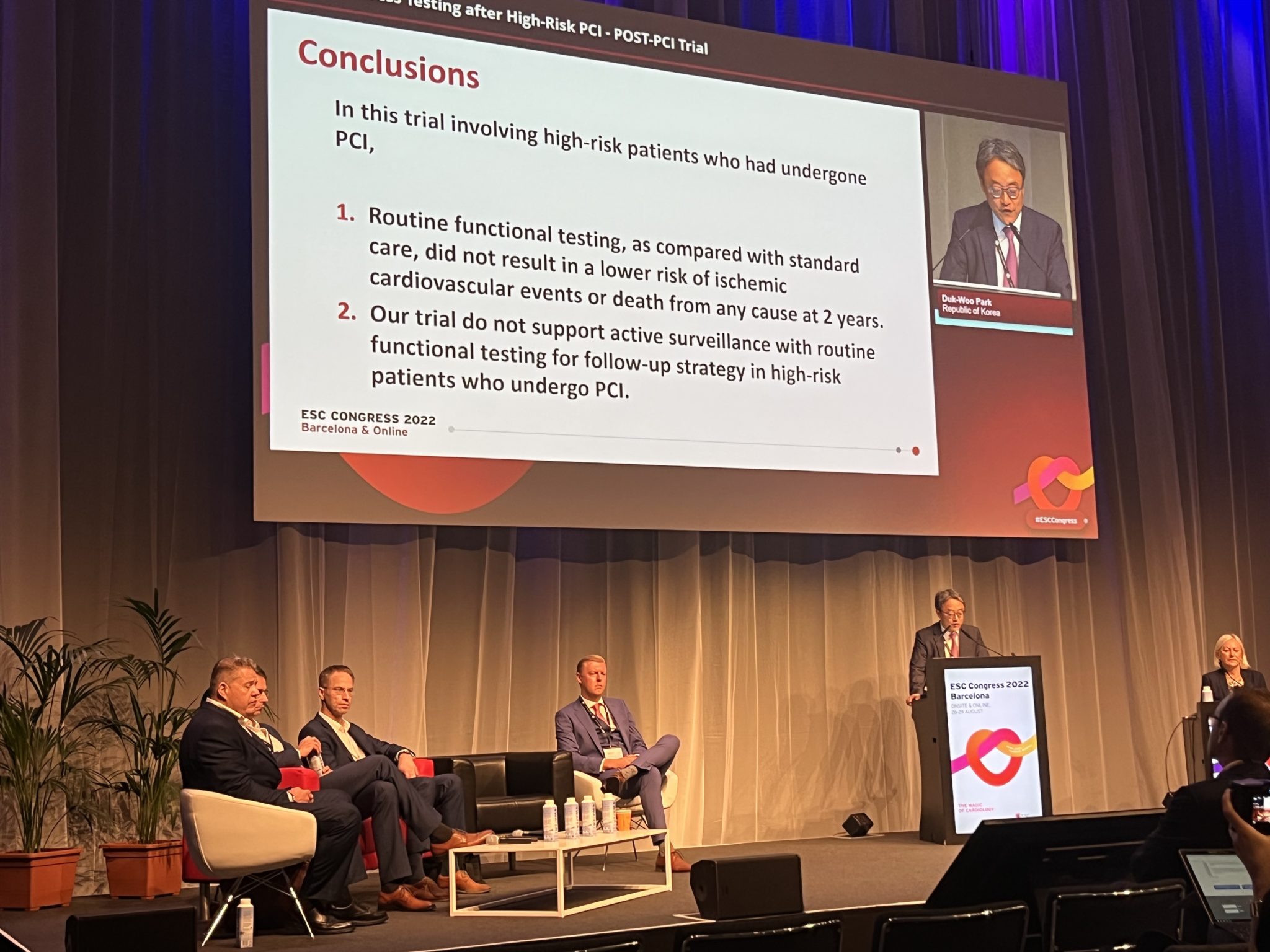
Among high-risk patients undergoing percutaneous coronary intervention (PCI), a follow-up strategy of routine functional testing, compared with standard care alone, did not improve clinical outcomes at two years.
This was the conclusion of the POST-PCI trial, presented by investigator Duk-Woo Park (Asan Medical Center, Seoul, South Korea) at the European Society of Cardiology (ESC) annual congress (26–29 August, Barcelona, Spain) and published simultaneously in the New England Journal of Medicine.
The investigation randomly assigned 1,706 patients with high-risk anatomical or clinical characteristics who had undergone PCI to a follow-up strategy of routine functional testing (nuclear stress testing, exercise electrocardiography, or stress echocardiography) at one year after PCI or to standard care alone.
The study’s primary outcome was a composite of death from any cause, myocardial infarction (MI), or hospitalisation for unstable angina at two years, while key secondary outcomes included invasive coronary angiography and repeat revascularisation.
Park reported that at two years, a primary-outcome event had occurred in 46 of 849 patients (Kaplan–Meier estimate, 5.5%) in the functional-testing group and in 51 of 857 (Kaplan–Meier estimate, 6.0%) in the standard-care group (hazard ratio, 0.90; 95% confidence interval [CI], 0.61 to 1.35; P=0.62), meaning that there were no between-group differences with respect to the components of the primary outcome.
Furthermore, at two years, 12.3% of the patients in the functional-testing group and 9.3% in the standard-care group had undergone invasive coronary angiography (difference, 2.99 percentage points; 95% CI, −0.01 to 5.99), and 8.1% and 5.8% of patients, respectively, had undergone repeat revascularisation (difference, 2.23 percentage points; 95% CI, −0.22 to 4.68).
The findings led Park to comment that routine functional testing, as compared with standard care, did not result in a lower risk of ischaemic cardiovascular events or death from any cause.
“Our trial does not support active surveillance with routine functional testing for [the] follow-up strategy in high-risk patients who undergo PCI,” Park told ESC attendees.












